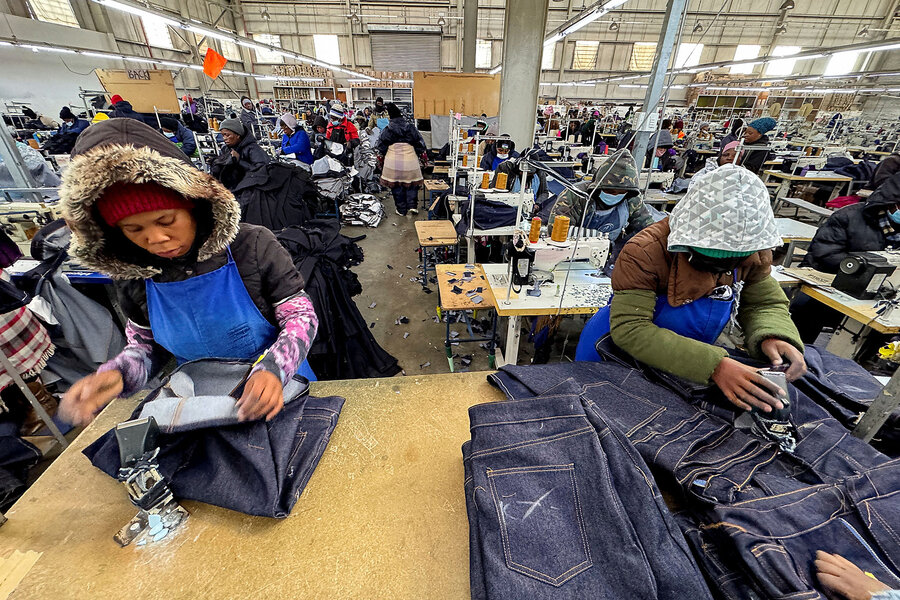A garment factory in Lesotho, which has produced Trump-branded golf shirts, is on the brink of closure following the imposition of massive import tariffs by the US government. Earlier this year, the small southern African kingdom was hit with “reciprocal” tariffs of 50%, the highest rate imposed on any country under US President Donald Trump’s trade measures. Although the tariffs were temporarily put on hold, Trump announced they would be reimposed on 1 August unless a new deal is reached.
For workers like Aletta Seleso, who has spent nearly a decade at Precious Garments earning $160 a month to support her family, the looming shutdown is devastating. The factory has already reduced operations, forcing employees to work just two weeks a month and cutting their salaries in half. “We don’t know how we survive this one. We are going to die,” Seleso said, adding that it has become “so hard” to provide for her child, mother, and her late sister’s children.
Lesotho, often called the “denim capital of Africa,” is home to garment factories producing clothes for major American brands like Levi’s and Wrangler. The textile industry is the country’s largest private sector employer, once providing 50,000 jobs but now reduced to around 36,000. About 12,000 of those are directly affected by the US tariffs. Precious Garments alone employed 4,000 workers at its peak.
Until this year, Lesotho enjoyed duty-free exports to the US under the African Growth and Opportunity Act (Agoa), a trade pact designed to alleviate poverty through job creation. The new tariffs threaten to undo that progress and could mark the end of Agoa for Lesotho. The government declared a national “state of disaster” to speed up job-creation efforts, but uncertainty continues to cripple the industry.
The impact is being felt far beyond the factory gates. In Maseru’s Thetsane industrial area, dozens of job seekers gather daily outside the closed CGM Presitex Jeans Manufacturer, hoping for a reopening. Among them is Puleng Selane, a mother of three who now survives by selling face masks. “Now life is so hard… we often eat once a day but sometimes go to bed without any food,” she said.
The textile crisis comes amid a wider unemployment emergency. Official figures put Lesotho’s unemployment rate at 30%, with youth unemployment near 50%. Youth activist and lawyer Tšolo Thakeli calls the situation “tragic,” blaming corruption and lack of a concrete government plan. Trade Minister Mokhethi Shelile insists efforts are underway, including shifting production to South Africa, but admits only 20% of the garment industry supplies the US market, making the tariffs a critical blow.
Factories like TZICC, a major sportswear producer supplying US retailers including Walmart and JC Penney, have already halted operations, laying off 1,000 workers after orders dried up. Hundreds of sewing machines now sit idle as the company waits for clarity on Agoa and the tariffs.
For thousands of workers and their families, the stakes are life-changing. Without a swift resolution between Lesotho and the US, the collapse of the garment sector threatens not just jobs, but the entire economic lifeline of the small nation.













Leave a comment